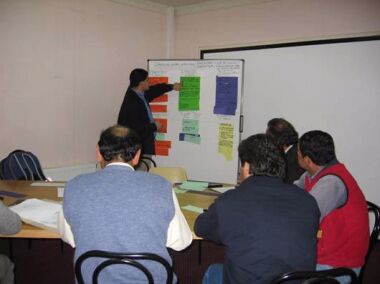Agent-based modelling and assessment of human-environment interactions
 Project Leader: Prof. Dr. Thomas Berger, Institute of Agricultural Sciences in the Tropics, Department of Land Use Economics in the Tropics and Subtropics
Project Leader: Prof. Dr. Thomas Berger, Institute of Agricultural Sciences in the Tropics, Department of Land Use Economics in the Tropics and Subtropics
Funding period: 2012-2016
A better understanding of human-environment interactions and especially of land users’ decision-making processes is a key requisite for exploring possible coping strategies to climate change and for improving land use planning.
So far, land system models have focused on land areas as the main unit of analysis and have not represented the decision-making of land users explicitly. Within the second generation of land system models, attention has therefore shifted from pixels to agents.
When building so-called multi-agent models, the challenge becomes to realistically represent individual land use decisions and especially the adaptation to climate change. Factors to be considered are options for technology adoption, learning and risk-coping strategies, and spatial interaction. Another challenge is the integration of multi-agent models with land surface-atmosphere models and especially crop growth models at detailed spatial scales, which has rarely been achieved. The major scientific goal of this subproject is to develop the agent-based model component for the overall land system model of this Research Unit. The project fulfils a linking role between the microeconomic modelling at the individual farm level and the biophysical modelling at the landscape level.
